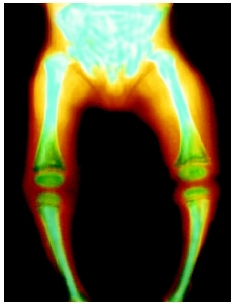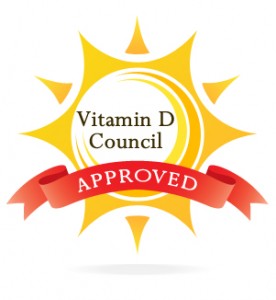 Are you worried about your heart, cancer risk, or bone health? Of course you are, especially since cancer and heart disease are the top killers of Americans, and osteoporosis affects more than half of Americans over age 50. If you’re serious about disease prevention, you need to get serious about vitamin D.
Are you worried about your heart, cancer risk, or bone health? Of course you are, especially since cancer and heart disease are the top killers of Americans, and osteoporosis affects more than half of Americans over age 50. If you’re serious about disease prevention, you need to get serious about vitamin D.
Vitamin D is an important nutrient found in fish, eggs, fortified milk, and cod liver oil. Many people aren’t getting enough of this vitamin and aren’t aware of the many health benefits it has on the human body.
Vitamin D is made up of two components; vitamin D2 (ergocalciferol) and vitamin D3 (cholecalciferol). Its major biological function is to maintain levels of calcium and phosphorous in the blood, as well as helping to form and keep strong and healthy bones. Recent research also suggests vitamin D may provide protection from osteoporosis, high blood pressure, cancer, and several autoimmune diseases. It is also a group of fat-soluble prohormones that helps to lower the testosterone levels in men.
Vitamin D can be acquired through sitting in the sun, through certain foods, and different supplements. If you live in a climate with limited sun exposure (Hello, Alaska!), have darker pigmented skin, are obese, or eat a vegan diet, you may not be getting your daily requirement of vitamin D. Are you getting enough?
Consumption of Vitamin D Naturally
People can obtain anywhere from 90-95 percent of their vitamin D through casual sun exposure. Though with cases of skin cancer on the rise, and more and more people slathering on sunscreen on a daily basis, many people aren’t getting their vitamin D from the sun alone.
If people are looking to obtain vitamin D through foods rather than supplementation, this can be done with specific food groups. Milk, for one, has 100 IU of Vitamin D in one eight-ounce glass.
Salmon, mackerel, and sardines have anywhere from 200-360 IU of vitamin D per 3.5-ounce serving in them. Do you like to eat cereal in the morning? If so, breakfast cereals can contain anywhere from 40-100 IU per serving.
A Growing Epidemic
 Vitamin D deficiency has become an epidemic in the United States because there are people who, even with the best of diets, still aren’t getting enough of this essential vitamin. The American Academy of Pediatrics claims that virtually everyone is deficient in Vitamin D.
Vitamin D deficiency has become an epidemic in the United States because there are people who, even with the best of diets, still aren’t getting enough of this essential vitamin. The American Academy of Pediatrics claims that virtually everyone is deficient in Vitamin D.
Vitamin D deficiencies are common with lack of sun exposure, obesity, and also in elderly and dark skinned people because of high amounts of melanin in their skin.
The deficiency can cause plenty of medical problems including poor insulin sensitivity, high blood pressure, inflammation and heart disease. In addition, bodybuilders should be aware that low vitamin D levels can also be associated with low testosterone levels.
Vitamin D levels and testosterone levels are lower in the wintertime because of less exposure to the sun than in the summertime. Athletes also peak during the summer season and their activities, especially outdoor activities, often decline during the winter months.
It has been estimated that a human male body needs anywhere from 3,000-5,000 IU of vitamin D per day because almost every tissue and cell in the body has a receptor that picks up vitamin D. Doctors recommend that vitamin D should be consumed by bodybuilders because it helps testosterone levels and can improve performance, but it should be consumed orally. In addition, the consumption of vitamin D is important for calcium metabolism maintenance and good skeletal health throughout a person’s life.
Vitamin D Products
 Dr. Sheets of Connecticut explains how bodybuilders can avoid the drop in testosterone and details the various products bodybuilders and others can take to get their daily value of vitamin D.
Dr. Sheets of Connecticut explains how bodybuilders can avoid the drop in testosterone and details the various products bodybuilders and others can take to get their daily value of vitamin D.
“Vitamin D, in absorbable form, comes in powder and liquid combinations. Most multi-vitamins, D containing vitamins, in pill form are poorly absorbed. Taking some form of absorbable vitamin D on a regular basis will help prevent testosterone levels from dropping. To get the proper amount daily, one should never consume less than 400 IU (International Units) and maybe as much as 1,500 per day.”
He went on to explain why vitamin D pills do not work as well as absorbable products.
“Twenty-eight to-forty percent of what is in the pill is absorbed by the body and the rest is wasted. The FDA makes companies sign off on what is in the pill, not the percent the user will get from taking the pill. The more calcium you get in the pill form, the user will experience more upset stomach or constipation. These pills are poorly absorbed and play around with water tables in the colon.
On the other hand, a supplement in an isotonic delivery system allows you to get close to 95 percent absorption with every dose. If you take the product on an empty stomach, which is preferred, the product will perform very well. The product will pass through the stomach, in isotonic form and will be recognized by the body as the same pH and consistency of its own. It will then be sent right to the small intestine where absorption takes place because no change is needed.
There are different products for all different age groups when it comes to adding vitamin D to the body. Vitamins for children, that have excellent flavors, can be purchased in isotonic form for absorption. There is no restriction on age with any of these vitamin D products or restriction on health conditions. For instance, pregnant women can take these products without harming their unborn child. The elderly tend to dislike taking pills, so being able to consume vitamin D in a liquid-powdery form helps them acquire the vitamin D needed to keep their testosterone levels where they need to be on a daily basis.”
Is Supplementation for Me?
Vitamin D is recommended on homeopathic sites all over the Web to aid and prevent certain cancers, gum disease, psoriasis, seasonal affective disorder, depression, polycystic ovarian disease and osteoporosis.
Whether or not you choose to supplement is a choice that you should make with your doctor. If you don’t feel you are getting enough exposure to the sun or getting enough vitamin D in your diet, the adding a vitamin D supplement to your diet may be an option.
The isotonic supplements mentioned in this article, along with more information on them, can be found at www.Nutrametrix.com/drsheets